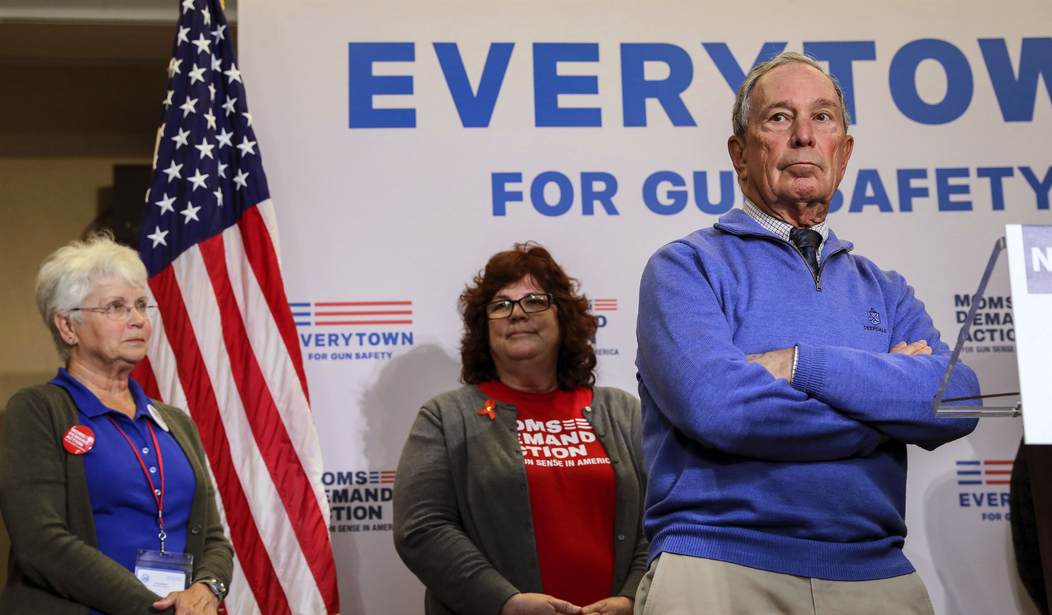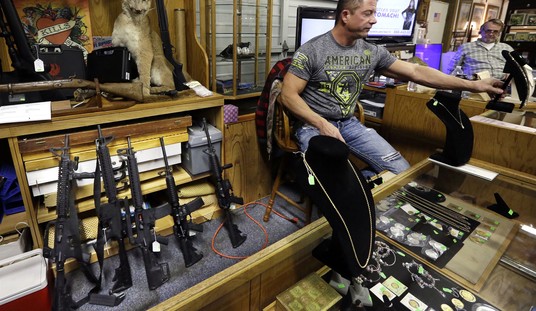For the first time since the 2014 election cycle, there won’t be a single gun control ballot initiative or referendum before voters on Election Day, and anti-gun activists are blaming the COVID-19 pandemic for their absence. According to the Michael Bloomberg-funded website The Tracestymied this year, gun control activists were when it came to collecting signatures for their favorite initiatives.
In 2016, a group of gun safety activists in Ohio decided they wanted to get a universal background check initiative on the 2020 ballot. Similar initiatives that expanded background checks to private gun sales had just been passed by voters in Washington State and Nevada, and the group, Ohioans for Gun Safety, wanted to replicate their success.
The all-volunteer staff spent more than a year conducting a listening campaign, during which they surveyed gun owners at gatherings across Ohio. They spent another year crafting language with the help of national gun reform groups and legal experts. They got the mayors of Cincinnati and Dayton on board. They gathered 2,000 signatures to file the proposal, then moved on to the final step: collecting more than 250,000 signatures. In December, they decided to shoot for the 2021 ballot, instead, to give themselves more time.
Then the coronavirus hit. The state Health Department issued a shutdown order in April. Collecting signatures became too risky for Ohioans for Gun Safety’s volunteers, who skew older. Four years of work was put on hold until 2022 — at least.
“We have overcome so many hurdles, but we never anticipated a pandemic,” Anne Wallace, one of the campaign’s organizers, told The Trace.
So, Ohioans for Gun Safety actually had four years to put their universal background check measure on the 2020 ballot, but couldn’t come up with the 250,000 signatures they needed. That’s why they decided to aim for 2021 instead, and that decision was made long before the first COVID-19 stay-at-home orders were ever issued. The coronavirus may be a welcome excuse for gun control activists, but their failure to get on the ballot this year can’t be blamed on the pandemic.
Wallace’s was not the only gun-related ballot initiative effort derailed by COVID-19. Groups in at least three other states are facing similar obstacles in their efforts to bring gun reform measures to the ballot. Activists in Oregon and Oklahoma also stopped collecting signatures for fear of spreading the disease, depriving them of an important vehicle for state-level gun reform.
In Oregon, a gun control group called Lift Every Voice was trying to get three gun control measures on this year’s ballot, but The Trace neglects to point out that the same group tried and failed back in 2018 to successfully gather more than 88,000 signatures for a gun ban referendum, in part because the Oregon State Supreme Court ruled that their proposed language was fundamentally flawed. The pandemic may have stopped the signature gathering this year, but there’s no guarantee that Lift Every Voice would have had any more success this year than they did in 2018.
In Oklahoma, attempts to undo the state’s permitless carry law via a voter referendum were struck down by the state Supreme Court, not the coronavirus. As NRA-ILA pointed out back in June, the court found that the referendum’s language was misleading to voters.
The court identified several deficiencies. The use of the word “restores” in the gist was both confusing and misleading. Not only did this require potential signatories to know the law as it was prior to HB 2597, SQ 809 did not completely “restore” this prior law because it retained several aspects of HB 2597.
Further, the language of the gist gave “the false impression” that the existing law did not prohibit handguns on college, university, or technology center property, and that SQ 809 would change the law to create a “campus carry” ban. “Handguns are already prohibited on the campuses, and that will continue whether or not SQ 809 is approved.”
Another inaccurate provision referred to the confiscation of firearms. The gist stated that SQ 809 “generally prohibits confiscation of firearms during traffic stops when any person in the vehicle holds a valid handgun license.” The existing law prohibits confiscation without regard to whether anyone in the vehicle has a license. The majority found the sentence was misleading because it failed to accurately explain SQ 809’s effect on the existing law (by making confiscation easier).
It wasn’t the coronavirus that killed off the anti-gun referendum in Oklahoma, but ineptitude on the part of gun control activists.
I understand why gun control advocates want to claim that, were it not for COVID-19, they would have been successful in their attempts to pass more gun laws via voter referendums this year, but the truth is that there are other reasons why the groups have failed to put their initiatives on the 2020 ballot, including legal flaws in their proposed ballot language as well as a lack of success in gathering signatures before the coronavirus hit the U.S. back in February and March.
Unfortunately for Second Amendment supporters, gun control groups like Everytown for Gun Safety aren’t relying solely on ballot initiatives and referendums to advance their agenda. They’re spending millions of dollars in states like Texas, Arizona, and Iowa in an attempt to turn state legislatures blue. If they’re successful they’ll be able to enact their same agenda with the help of newly-elected anti-gun lawmakers. If gun owners and Second Amendment supporters are able to hold the line, however, expect a renewed push for gun control ballot referendums to begin almost as soon as the 2020 election results have been finalized.









Join the conversation as a VIP Member